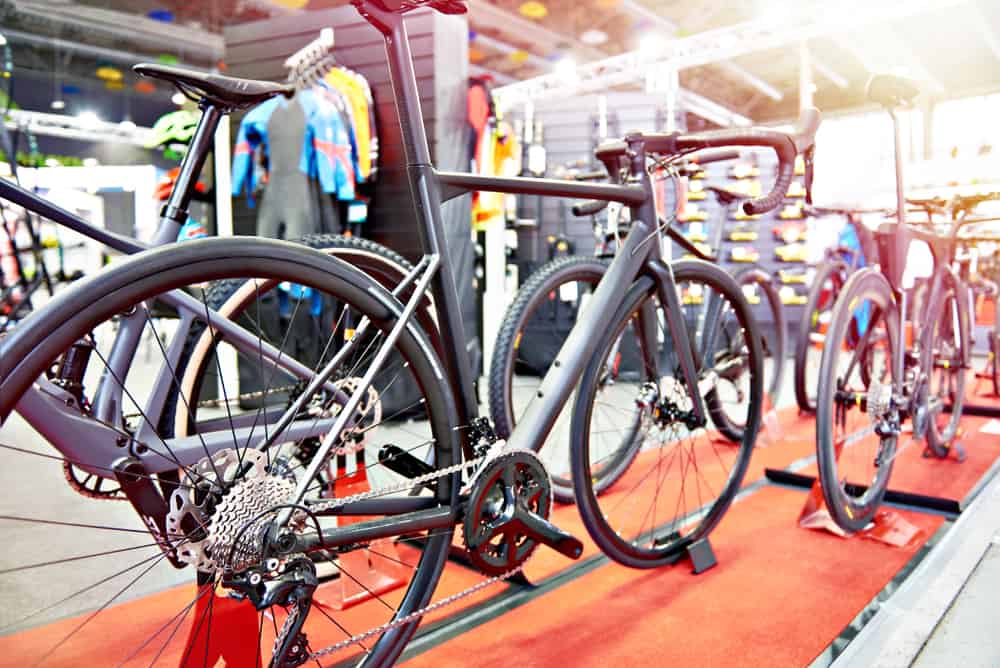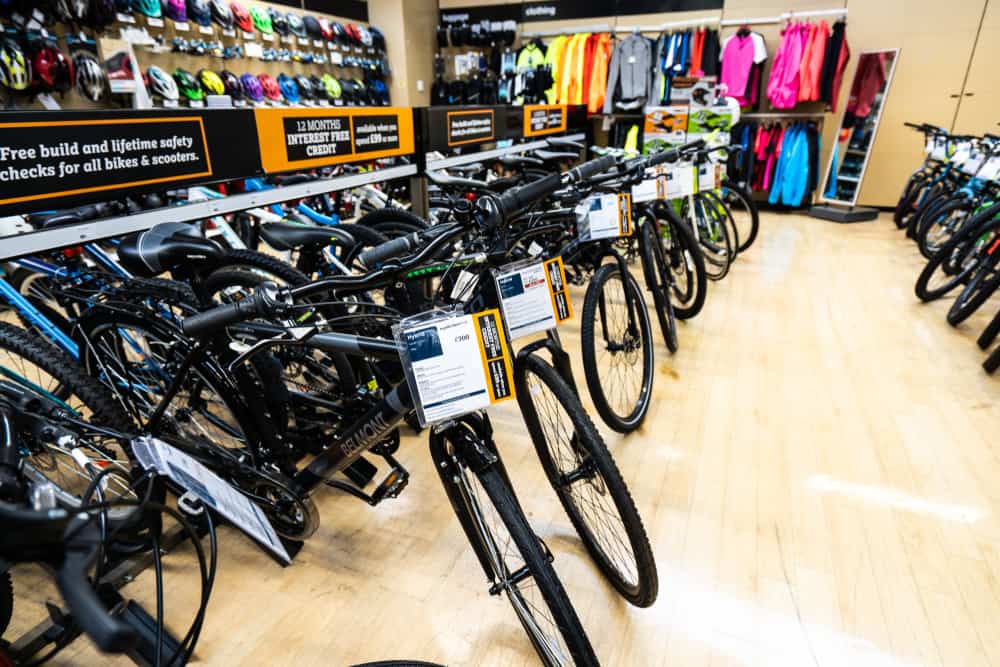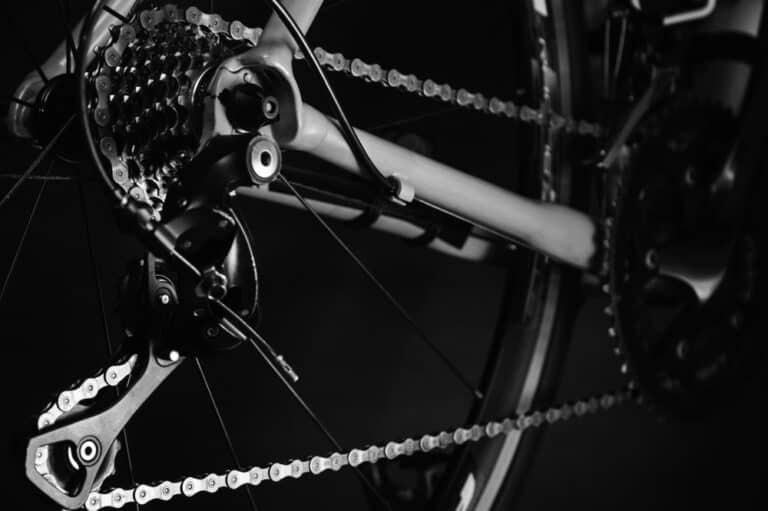How Often Should You Buy A New Road Bike?

Nothing quite compares to having the sun behind you and the wind in your hair. Taking your road bike out for a spin is a great form of exercise and can save you tons of money if you use your road bike as your primary means of transportation. But how often should you replace your road bike?
The lifespan of your road bike depends heavily on how well you maintain your road bike. Depending on the materials your bike’s frame and components are made from. A bike can last anywhere from six to forty years. Proper storage and maintenance can greatly increase your road bike’s lifespan.
Road bikes can be very expensive to replace. How often one needs to replace their road bike depends on how passionate they are about keeping their road bike in top condition. Let’s discuss how often you should buy a new road bike.
When Should You Replace Your Bike Frame?
The most critical structure in a road bike is undoubtedly its frame. But with so many different kinds of bike frames, which one lasts the longest? How do you tell when you need to swap your bike frame? Let’s discuss the different types of bike frames to find out if it would shed some light on our topic today.
Aluminum Bike Frames
Aluminum bike frames are the most popular type of bike frame thanks to the low material costs it takes to fabricate an aluminum bike frame and how light an aluminum bike frame is. The reduced material cost and weight of aluminum bike frames make them susceptible to damage. Aluminum bike frames can easily bend or even break entirely if enough force is applied to the frame.
Steel Bike Frames
Steel bike frames are great because of their hardness. It is incredibly difficult to break or bend a steel bike frame. The downside to using steel bike frames is that they are heavy and are not recommended to people who are looking to make cycling their primary form of transportation. The biggest problem with steel bike frames is that they are very susceptible to rust when not properly maintained.
Titanium Bike Frames
Titanium bike frames have become very popular and are favored by cycling enthusiasts. Titanium is extremely durable, corrosion-resistant, and can withstand a lot of pressure. The primary tradeoff titanium makes for its durability is its cost. Titanium bike frames are very expensive to manufacture.
Carbon Fiber Bike Frames
Carbon fiber bike frames last longer than aluminum, steel, and titanium bike frames and won’t be replaced nearly as often as its competitors. Carbon cannot rust and does not corrode over time like metallic bike frames. The only downside to carbon fiber bike frames is that they are some of the most expensive bike frames on the planet.

Bike Parts Prone To Failure
Unless you get into a serious accident or your bike frame disintegrates entirely due to unfavorable weather conditions, you will likely have to replace some of the individual components before purchasing an altogether new road bike. Here are some of a bike’s most common parts that fail long before the bike frame.
Grips
The grips on your road bike can wear out over time due to constant use. If you have particularly acidic sweat, the rubber on your grips will wear out long before you need to replace your entire bike. The easiest way to help lengthen your bike grips is to wear riding gloves and clean them often as you ride.
Keeping in mind that rubber isn’t immune to tearing forces, try to avoid awkwardly pulling on your grips, causing the rubber to stretch and become brittle. Rubber is also prone to becoming weak when exposed to excessive sunlight. Do your best to keep your bike out of direct sunlight to help lengthen your grips life.
Cables
The cables that give you control over your road bike’s gears and brakes can fray or rust over time. These cables are relatively cheap and should be replaced when you notice they are damaged. Without these cables, your risk of serious injury increases. An accident is the quickest way to a broken bike.
Tires
Much like your car, the tires on your bike wear out over time. When the tread pattern becomes smooth, it’s time to replace your tires. Worn-out tires are often very brittle and can rupture without warning. Ensuring that your tires remain in good condition will keep your bike on the road for many years.
Brake Pads
Like the cables, your bike’s brake pads are one of, if not the most important pieces in your bicycle, second only to the steering rack. Without brakes, you cannot slow down safely and avoid an accident. Brake pads tend to wear out quicker when people brake harshly. You’ll find that you replace your brake pads more often than your bike frame.
Chain
The gear chain could be the single weakest component in your entire bike. This chain is often the most common point of failure and is the most likely to rust first. It’s easy to sport a chain that needs replacing. You will see bright strips of browns and oranges. These spots tell you that your chain’s structural integrity has been compromised and will fail soon if not replaced.
How To Extend Your Road Bike Lifespan?
Suppose you want to extend your road bike’s lifespan. In that case, you must ensure that you regularly maintain your bike and its components, clean your bike thoroughly after each use, and store your bike properly to avoid unnecessary exposure to the elements. Riding your bike carefully and braking slowly will also lengthen the lifespan of your road bike by keeping you from getting into avoidable accidents.
Conclusion
Road bikes are great and will serve you for decades if taken care of properly. Road bikes are similar to people. The better you treat them, the longer you’ll enjoy their company. Regularly inspect your road bike and be careful not to neglect its maintenance.
References
- https://www.bikeradar.com/features/should-you-replace-your-3-year-old-road-bike/
- https://www.quora.com/How-often-should-you-replace-your-road-bike
- https://www.roadbikereview.com/threads/how-often-do-you-get-a-new-bike.199805/
- https://singletrackworld.com/forum/topic/how-often-do-you-changebuy-a-new-bike-and-why/
- https://bicycles.stackexchange.com/questions/5409/how-long-is-the-life-cycle-of-a-bicycle#:~:text=To%20summarise%2C%20a%20bike%20will,the%20case%20of%20a%20crash).
- https://cyclingmagazine.ca/spotlight/replace-6-bike-parts/
- https://momentummag.com/5-bicycle-parts-maintain/
- https://hobbybiker.com/how-long-bike-frames-last/#:~:text=Depending%20on%20the%20frame%20material,some%20even%20outlasting%20their%20riders.
- https://www.redbull.com/za-en/pro-mechanic-tips-for-your-bike






